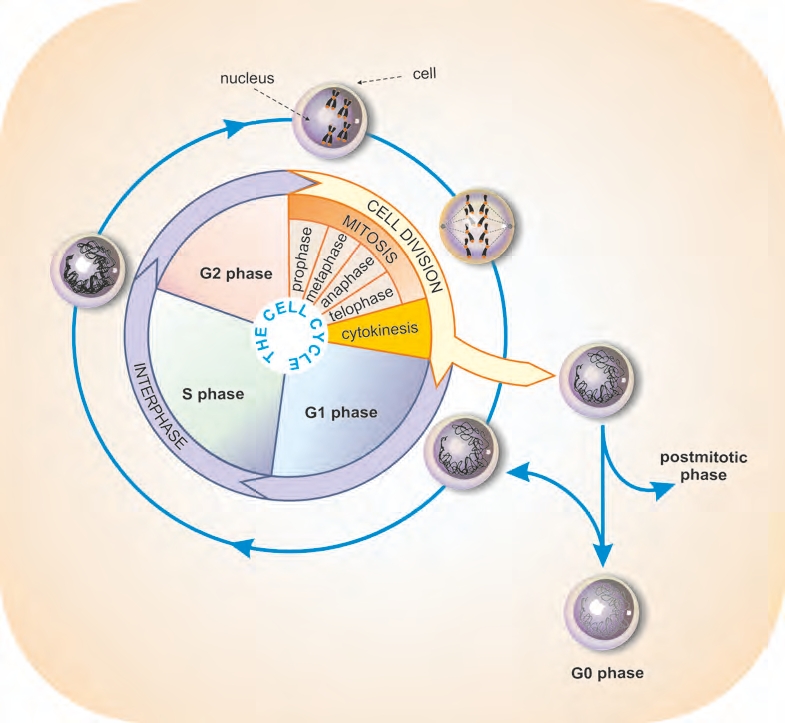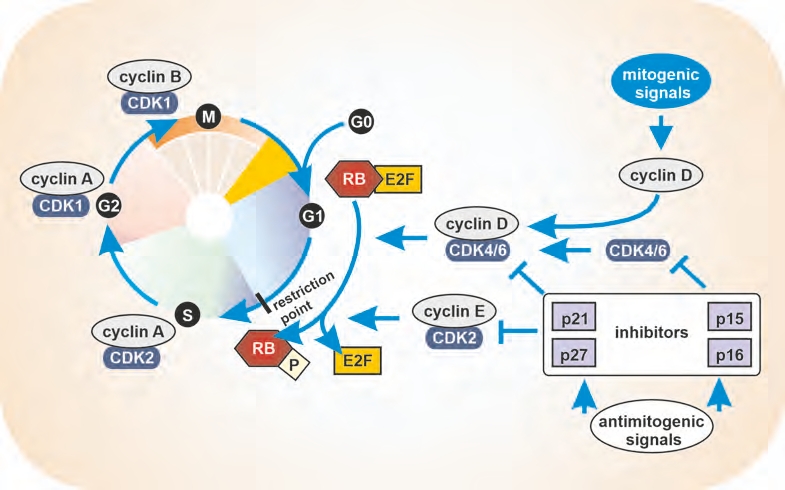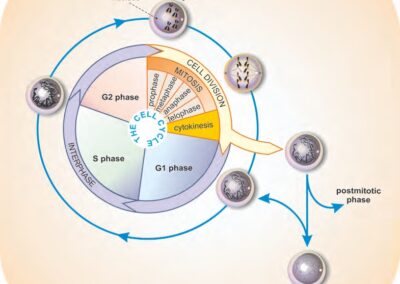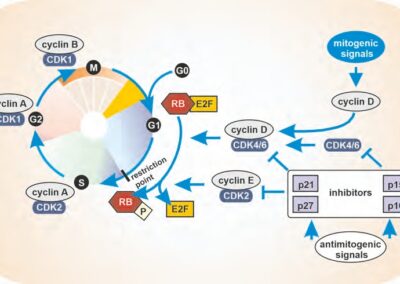In Chapter 3, the book reaches its first climax. It’s a chapter dedicated to speed. First, that associated with the division of tumor cells, and then that associated with our lives in modern society. In both cases to the detriment of its ruthless proponents.
Healthy cells pay great attention to controlling their division. At the molecular level, we already know a lot about the regulators that can cause a cell to divide or, on the contrary, prevent it from dividing, as well as the signaling mechanisms that control these regulators. Would you like to find out more? In Chapter 3 you will find a detailed explanation. You will learn that there is no one right division rate for all cells in the body. For some cell types, a higher division rate is natural, while others divide only rarely or not at all. And this diversity is also dynamic: with the exception of fully differentiated cells, which have already lost their ability to divide, the rate of individual cells can change depending on the immediate situation in the environment and on their current internal state. The key to this is the stimuli – the signals that the cell receives and the way in which they are transmitted to the effectors responsible for carrying out all the processes associated with cell division. The stimulus is therefore in the form of a signal molecule that is taken up by the corresponding receptor and passed on to the messenger system, which then transports it to the effectors. Everything works like a well-oiled machine. But like any machine, it can go wrong on several levels: The stimulus itself can be wrong if it occurs under conditions where it should not. A receptor or one of the intracellular messengers can be incorrectly shaped and adopt an active conformation as a spoilage, even when no stimulus is present. Thus, the cell lies that it should divide, even under inappropriate conditions. The misguided cell attempts to fulfill a false growth signal, sets a high rate of growth and division, and thus has the potential to become the basis of a future tumor. However, there are protective mechanisms in the body that can tame cells that divide disproportionately. Just expose them to a growth-inhibiting signal and the process of preparing for cell division is halted. However, free, rapidly dividing cell in the process of carcinogenesis can also deal with this obstacle: It loses sensitivity to these inhibitory stimuli, ignores them and, as if torn from a chain, plunges into ever new rounds of division. Setting the correct division rate is therefore a question of genuine communication between the cells and a fully functional intracellular apparatus for the actual execution of the cell cycle and division. Note the key word communication!


Genuine communication is indeed a fundamental factor in the success of our human endeavours. And this is one of the themes of the second, overlapping part of the third chapter. When we lie to each other, we distort reality and thus limit our ability to act effectively. The lie, or at least the mendacious, deliberate embellishment of reality, is omnipresent; we encounter it in the world of advertising, in the world of politics, in our relationships, and sometimes even in the world of science. And while our cult of speed is intoxicating, it is also harmful: the pressure to constantly improve performance, the lack of sleep and rest are clearly not good for our health. Reaching the finish line is no reason to rest, but to tackle and overcome other obstacles as quickly as possible. In this highly interesting chapter, the reader learns about death by overwork, which is particularly prevalent in Japan, about the constant pressure to increase the performance of the national or global economy, about the fact that in the never-ending race we have no time for introspection to evaluate where and why we are actually running and whether this action is meaningful. The speed is so tempting and captivating that we become desensitized like cancer cells when it comes time to slowing down. We also do not have time to think at a breakneck pace. Here the author offers the perspective of Carlo Honoré in his work In Praise of Slowness and his philosophy of slowing down, but with the emphasis that we, like cells and moreover gifted with reason, should be able to adapt our pace to the situation at hand: be fast where appropriate and purposefully slow down where high speed is unnecessary or even harmful.


